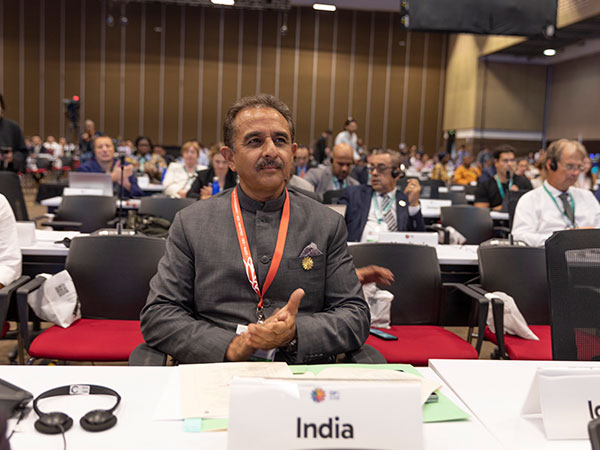India has sought international funding to implement its national biodiversity action plan at the UN Biodiversity Conference (COP16) in Cali. Union Minister of State for Environment, Kirti Vardhan Singh, announced on Tuesday that India will launch the updated national plan to protect biodiversity at the conference on October 31.
Delivering the national statement at COP16, Singh emphasised the need to provide means of implementation, including financial resources for the National Biodiversity Strategy and Action Plan (NBSAP).
He said that India has updated its NBSAP with targets aligned with the Kunming-Montreal Global Biodiversity Framework (KMGBF).
“India adopted a ‘Whole of Government’ and ‘Whole of Society’ approach while updating the NBSAP, with targets aligned with the KMGBF. We will be releasing our updated NBSAP tomorrow here in Cali,” Kirti Vardhan Singh said.
“It is necessary to provide means of implementation, including financial resources, as laid down in Target 19 of the KMGBF, as well as from Digital Sequence Information (DSI), for the implementation of the NBSAP. A lot of ground needs to be covered in providing easily accessible means of implementation, such as financial resources, technology, and capacity-building needs with the requisite speed, scope, and scale,” Singh added.
The Convention on Biological Diversity (CBD), adopted in 1992, aims to conserve biodiversity, promote its sustainable use, and ensure equitable sharing of genetic resource benefits. To fulfill these goals, the CBD requires each member country to develop a National Biodiversity Strategy and Action Plan (NBSAP), a tailored framework for protecting and managing biodiversity based on national priorities.
An NBSAP aligned with the KMGBF means that a country’s biodiversity conservation strategies are tailored to meet both national and international biodiversity goals.
The KMGBF, established in 2022, set global targets to halt biodiversity loss by 2030 and to restore ecosystems, protect species, and ensure the sustainable use of natural resources. By aligning NBSAPs with these targets, countries commit to specific actions, such as protecting 30 percent of land and sea areas, reducing pollution, and enhancing ecosystem resilience—that contribute to shared global priorities.
Singh also underscored India’s dedication to biodiversity preservation and environmental harmony. He highlighted India’s cultural and environmental legacy, stating, “India has a rich culture and tradition of worshipping Mother Earth and living in harmony with Nature.”
India’s unique status as one of the world’s 17 mega-diverse nations includes hosting four of the 36 globally recognized biodiversity hotspots.
A central theme of Singh’s speech was India’s launch of the nationwide tree plantation initiative “Ek Ped Maa Ke Naam” or “Plant4Mother.” The campaign, unveiled by Prime Minister Narendra Modi on World Environment Day, aims to “honor Mother Earth as we honor our Mothers,” Singh said, adding that the movement aligns with India’s environmental mission, “Lifestyle for the Environment (LiFE),” which promotes eco-friendly lifestyles on a global scale.
India has also taken significant steps toward wildlife conservation with the establishment of the International Big Cat Alliance (IBCA), aimed at safeguarding major big cat species. Singh said, “These species are indicative of healthy ecosystems and rich biodiversity,” reinforcing India’s global conservation efforts.
In another major environmental milestone, Singh highlighted the rejuvenation of the Ganga River through the “Namami Gange” Mission, which was recently recognized by the United Nations as one of the top 10 World Restoration Flagships. He also pointed out that India’s Ramsar sites have expanded from 26 to 85 since 2014 and will soon reach 100, a testament to India’s focus on wetland conservation.














